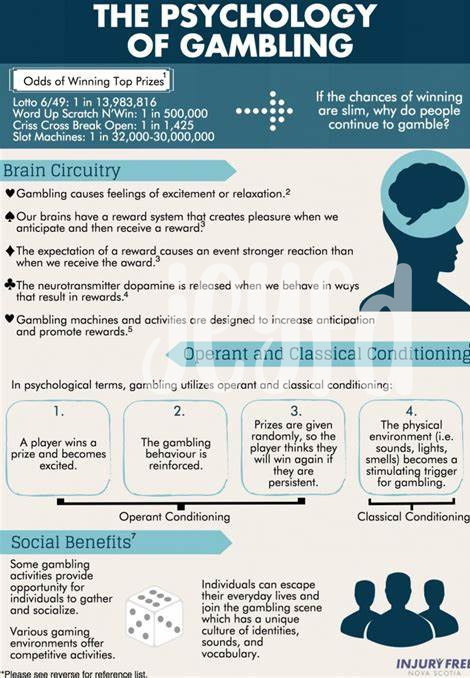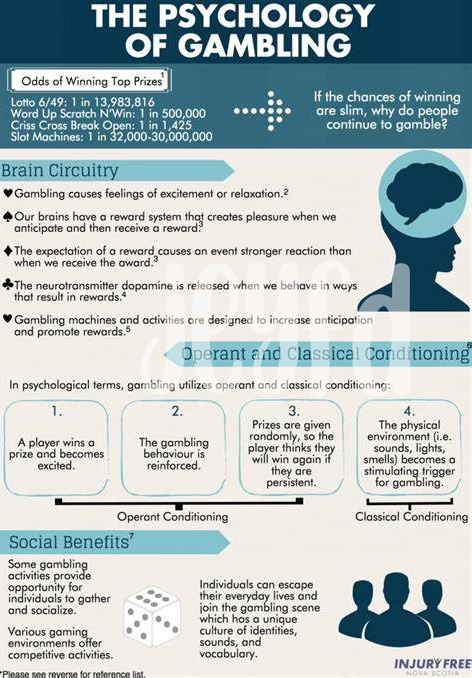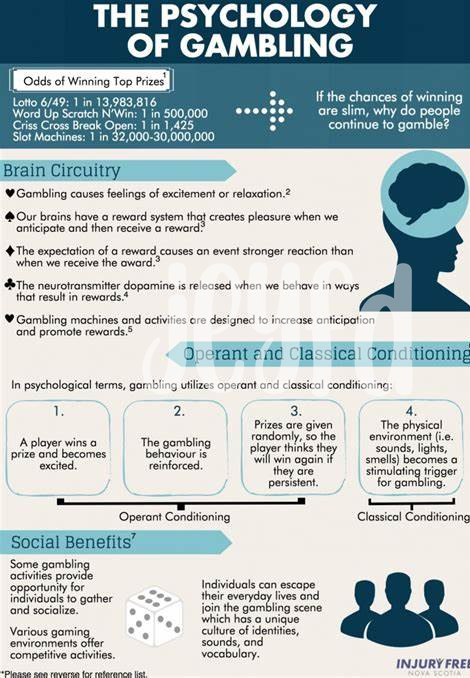Explore How the Psychology and Behavior of Gamblers Are Influenced by Their Beliefs in Superstitions and Rituals.
The Role of Superstition and Rituals in Gambling Behaviour
- 🍀 Exploring the Roots of Superstitions in Gambling
- 🎲 Personal Rituals and Their Psychological Impact
- 🧠 the Mindset Behind Lucky Charms and Omens
- 📊 Statistical Outcomes Vs. Superstitious Beliefs
- ⏳ Age-old Traditions Vs. Modern Gambling Practices
- 🔍 Case Studies: Superstitions That Shaped Wins and Losses
🍀 Exploring the Roots of Superstitions in Gambling

The fascination with luck and the belief in the power of superstitions have deep roots in the gambling world, tracing back to ancient civilizations. Gamblers have long subscribed to the notion that certain rituals or objects can influence the outcome of their endeavors, despite the random nature of gambling activities. This belief in superstitions can be seen as a way to gain some semblence of control in the inherently unpredictable environment of gambling. From the rolling of dice to the dealing of cards, every action is imbued with potential omens and superstitions, illustrating how deep-seated these beliefs are.
Personal rituals, ranging from simple habits like knocking on wood to complex sequences before placing a bet, play a significant role in the psychology of gambling. These rituals, often passed down through generations, serve not only to attempt to sway odds in one’s favour but also to enhance the emotional experiance of gambling. It’s this psychological comfort and the illusion of control that can significantly impact a gambler’s confidence and decision-making, sometimes leading to riskier bets under the guise of a ‘lucky streak.’
The mindset around lucky charms and omens further demonstrates the blend of hope and desperation that characterizes much of gambling behaviour. Items considered to be lucky, such as rabbit feet, lucky coins, or even specific garments, are carried by gamblers in the belief that they can somehow ward off bad luck or attract positive outcomes. This reliance on objects or specific rituals underscores a universal human trait: the need to believe in something greater, something beyond the mere roll of the dice.
In exploring the intricacies of gambling superstitions, it’s essential to recognize the paradoxical nature of relying on the irrational to navigate a sphere inherently ruled by chance. While the statistical outcomes of gambling endeavors cannot be influenced by such beliefs, the comfort and confidence they provide to players highlight a profound aspect of human psychology. As such, gambling superstitions offer a fascinating glimpse into the human desire for control in the face of uncertainty, a theme that resonates far beyond the casino floor.
| Concept | Description |
|---|---|
| Lucky Charms | Objects believed to bring good luck in gambling settings. |
| Personal Rituals | Specific actions or sequences performed by individuals in the belief that they influence gambling outcomes. |
| Psychological Impact | The effect of superstitions and rituals on a gambler’s confidence and decision-making process. |
| Statistical Outcomes | The reality of gambling results, unaffected by superstitions or rituals. |
🎲 Personal Rituals and Their Psychological Impact

In the intricate world of gambling, the rituals that players adhere to might seem bizarre to the outsider, yet they serve as a cornerstone for the psychology and behavior of gamblers. Take, for example, a punter at the races who won’t place a bet untill they’ve pat the horse number eight, believing this action imbues their wager with luck. This ‘magic mouthwash’ for their betting strategy illustrates not just a belief in luck’s power, but a deeper psychological play at work. It’s a way to combat the capricious nature of gambling outcomes, injecting a sense of control and predictability into an inherently uncertain environment.
Delving deeper, it’s not just about the act itself but the comfort and security these rituals provide. A gambler sticking to a ‘script’ before rolling the dice isn’t merely engaging in superstition; they’re enveloping themselves in a familiar and comforting process amidst the chaos. This predictability can be soothing, offering a psychological safe haven in a sea of variables that they cannot control. For many, these rituals border on compulsive, yet they serve a dual purpose: mitigating anxiety and enhancing the sensory experience of gambling.
Critically examining these practices through the lens of behavioural science sheds light on their dual-edged nature. On one hand, they can lead to problematic gaming by encouraging an irrational trust in non-effective strategies. On the other, understanding the rituals and superstitions can offer insights into human cognition and decision-making, presenting a fascinating paradox of logic versus emotion. The importance of these findings is not lost on professionals aiming to foster healthier gambling practises, highlighting the complex interplay between mind, behavior, and chance in the gaming world.
🧠 the Mindset Behind Lucky Charms and Omens

Delving into the psychology and behavior of gamblers, one can’t help but notice the potent influence of lucky charms and omens. These symbols and objects often carry profound personal significance, acting as a psychological anchor in the tumultuous sea of chance and uncertainty inherent in gambling. This reliance isn’t merely about the physical presence of an object or ritual but taps deeply into the gambler’s psyche, offering a semblance of control in what is undeniably a game of luck. The belief in lucky charms transcends mere superstition; it becomes a vital component of the gambler’s strategy, a way to ‘tip the odds’ in their favor, if only in their minds. Whether it’s carrying a rabbit’s foot, wearing a lucky shirt, or performing a specific ritual before a bet, these practices serve to ease the anxiety that often accompanies gambling, providing comfort and, arguably, enhancing the overall experiance.
It’s fascinating to observe how these beliefs in omens and lucky charms persist despite the ever-present reality of statistical outcomes. Gamblers often disregard the cold, hard facts of probability in favor of a more mystical belief system that champions hope over rationality. The allure of ‘a sign,’ be it an omen spotted on the way to a casino or a lucky number that seems to repeatedly surface in life, holds a compelling sway over the gambler’s decisions. This dichotomy between the rational and the irrational, the statistic versus the superstition, highlights a core aspect of human nature: the desire to believe in something greater, something beyond our control, that might just swing fortune in our favor. This belief system not only fuels the gambler’s persistence but also blurs the lines between hope and strategy, turning every roll of the dice, spin of the wheel, or flip of a card into a narrative replete with personal meaning and significance.
📊 Statistical Outcomes Vs. Superstitious Beliefs
In the fascinating realm of gambling, the tug-of-war between statistical outcomes and superstitious beliefs unveils a unique aspect of the psychology and behavior of gamblers. Most players are acutely aware that casino games are governed by the cold, hard math of probability and chance, yet many cling firmly to the belief that specific rituals or charms can sway luck in their favor. This juxtaposition raises eyebrows, not least because it highlights how deeply personal experiences and the human need for control infiltrate spaces dominated by random outcomes. It’s not uncommon to witness a seasoned player, who can calculate the odds in a heartbeat, simultaneously rub a ‘lucky’ coin or whisper a silent prayer before a critical move.
This blend of logic and lore suggests that while gamblers may understand the reality of their odds, the comfort found in superstitions offers a psychological safety net of sorts. Superstitions act as a coping mechanism in the unpredictable world of gambling, providing a semblance of control in a game largely dependent on fortune. Interestingly, this intertwining of rational strategies and irrational rituals underlines a broader narrative about human nature, wich consistently seeks to find patterns or cause in random events—a phenomenon firmly rooted in our evolutionary past.
Moreover, the widespread prevalence of such beliefs in gambling illuminates the complicated dynamics between knowing and hoping. On one hand, there’s a rational acknowledgment of ‘the house always wins’ maxim, supported by mathematical certainties. On the other, the allure of a big win, spurred by a personal talisman or a pre-play ritual, underscores the eternal optimism that temporarily overshadows statistical facts. This duality not only shapes the experiance of gambling but also speaks volumes about the human condition, illustrating our innate desire to defy the odds, armed with nothing but belief and perhaps, a lucky charm.
⏳ Age-old Traditions Vs. Modern Gambling Practices

Delving into the psychological intricacies of gamblers reveals a fascinating juxtaposition between timeworn traditions and today’s digital gambling fronts. Historically, gambling was steeped in rituals, from the casting of lots in ancient scripts to the elaborate ceremonies observed in traditional betting houses, where every action from the roll of dice to the shuffling of cards was imbued with symbolic meaning. These practices were less about influencing the outcome – as modern understanding would dictate – than about participating in a communal event, fostering a sense of belonging and adherence to societal norms. Today, with the advent of online casinos and app-based betting, the physical manifestations of these rituals have evolved. Gamblers now create personal spaces or ‘pharm lands’, adorned with digital or tangible lucky charms, embodying the modern equivalent of ritualistic comfort. Yet, the core sentiment remains unchanged; they serve to instil a sense of control in the inherently uncertain world of gambling.
The advent of technology hasn’t obliterated these age-old customs; rather, it’s repackaged them. ‘Pill splitting’ – a term borrowed from pharmacy but whimsically repurposed in the gambling lexicon – refers to the division of bets across various outcomes, mirroring the meticulous preparation of medicines and the hope of enhancing fortunes by scientific means. This blend of past and present practices underscores the unchanging nature of the gambler’s pursuit: an attempt to tilt the whims of fate in one’s favor, defying statistical odds with a concoction of rituals and tech-savvy innovations.
| Practice | Traditional Setting | Modern Equivalent |
|---|---|---|
| Lucky Charms | Amulets or talismans | Digital emojis or app settings |
| Betting Rituals | Physical actions (e.g., blowing on dice) | Setting up ‘pharm lands’ or special apps environments |
| Seeking Omens | Interpretations of natural occurrences | Algorithmic predictions or pattern analysis |
This transition hasn’t eradicated the psychology and behavior of gamblers; instead, it highlights a universal quest for luck, mediated through the lens of cultural and technological evolution. Whether through the tangible touch of a rabbit’s foot or the virtual flair of a lucky emoji, the essence of gambling remains a dance with destiny, choreographed with a blend of ancient rites and digital-age innovations.
🔍 Case Studies: Superstitions That Shaped Wins and Losses
Delving into the world of gambling through case studies reveals a fascinating blend of success and failure, often intertwined with superstitions and personal rituals. One intriguing example is a poker player who never starts a game without his “lucky” socks. According to him, every major win was secured while wearing them. Such stories highlight the strong belief in lucky charms and rituals, despite the ‘red flags’ they might present in a logic-driven environment like gambling. This reliance suggests a deep-rooted trust in items or practices to sway the odds in one’s favor, defying statistical rationale for a chance at luck’s grace.
Another case study that captures attention involved a group of blackjack players who participated in what could only be described as a ‘pharm party’, but with a twist. Instead of trading prescription drugs, they exchanged various lucky charms before hitting the tables. This practice not only underscored the communal aspect of gambling superstitions but also demonstrated how rituals could evolve into shared experiences, enhancing the social fabric of gambling culture beyond individual quirks. Despite the lack of scientific backing, these rituals provided a psychological armor against the unpredictability of gambling.
Interestingly, interviews with seasoned gamblers reveal a common theme: the efficacy of superstitions and rituals is more psychological than logical. For instance, a gambler strictly adheres to the ritual of walking around his chair three times before sitting down to play online slots. He claims this routine has been crucial in securing his most significant jackpots, highlighting the placebo effect these rituals can have. The mind’s power to influence perception and confidence in such scenarios is a fascinating area of study, showing how even in the age of advanced analytics, the human element remains key.
Contrastingly, examining losses leads to the exploration of ‘zombie pills’ – a metaphor in our context for blindly following superstitions without adapting to changing circumstances. A notorious case involved a gambler relying solely on the guidance of fortune cookies, leading to substantial losses. This rigid adherence to a singular superstitious practice, without considering skill or strategy, serves as a cautionary tale. It illustrates the detrimental impact superstitions can have when they overshadow rational decision-making, offering valuable lessons on the necessity of maintaining a balance between belief in luck and pragmatic gambling strategies.


